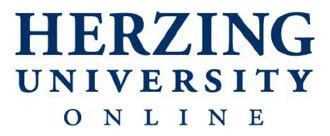If you are computer savvy and aspire to pursue a career in technology, you might first earn an undergraduate degree. At Herzing University, you could study for the Bachelor of Science in Information Technology with a concentration in Security Technology. Read more about this course of study here.
<h2 id="section---FrequentlyAskedQuestions">Frequently Asked Questions</h2>
<h3 id="section---WhatKindOfProgramIsIt">What Kind of Program Is It?</h3>
<p>Herzing University's Bachelor of Science in Information Technology with a concentration in Security Technology program is intended to examine concepts in computer science, information management, and business communications. The program is designed to teach you to analyze the network infrastructures of given organizations and to develop information systems based on their needs. The security technology concentration is designed to focus on maintaining the safety of intricate network systems. You will have opportunities to learn to design and implement various protocols and procedures for repairing computer viruses and damaged files as you explore methods for preventing identity theft and online fraud. This program is offered online and at select campuses.
</p>
<h3 id="section---WhatAreThePrerequisites">What Are the Prerequisites?</h3>
<p>As a potential applicant to this program, you should enjoy the problem-solving process. You should be adaptable and creative and possess the ability to work well with others. Though requirements may vary, you should have earned a high school diploma or equivalent.
</p>
<h3 id="section---WhatAreTheCourseRequirements">What Are the Course Requirements?</h3>
<p>The Bachelor of Science in Information Technology with a concentration in Security Technology program requires you to complete 122 semester credit hours. The program consists of core and technical specialty courses as well as general education subjects.
</p>
<p><u>Required Information Technology Core Courses</u>
</p>
<p />
<table border="1"><tr><th>Course Code </th><th>Course Title</th></tr>
<tr><td>IS 103 </td><td> Programming Logic</td></tr>
<tr><td>IS 112 </td><td> Computer Networks</td></tr>
<tr><td>IS 182 </td><td> Database Concepts and Applications I</td></tr>
<tr><td>IS 185 </td><td> Computer Architecture and Troubleshooting I</td></tr>
<tr><td>IS 191 </td><td> Linux Administration</td></tr>
<tr><td>IS 282 </td><td> Network Security</td></tr>
<tr><td>IS 284 <br /> <br />NT 215</td><td> Routers & Switches I <br /> <b>OR</b><br /> Routers & Switches</td></tr>
<tr><td>IT 201 </td><td> Internet Concepts and Human Computer Interaction</td></tr>
<tr><td>IT 345 </td><td> Information Technology Project Management</td></tr>
<tr><td>NT 180 </td><td> Network and Server Operating Systems</td></tr>
<tr><td>NT 200</td><td> Network Infrastructure Administration</td></tr>
</table><p><u>Required Courses in Technical Specialty Domain - Security Technology</u>
</p>
<p />
<table border="1"><tr><th>Course Code </th><th>Course Title</th></tr>
<tr><td>IS 421 </td><td> Firewall Security</td></tr>
<tr><td>IT 335 </td><td> Ethical Hacking</td></tr>
<tr><td>NT 305 </td><td> Virtualization</td></tr>
<tr><td>NT 315 </td><td> Designing Network Security</td></tr>
<tr><td>NT 343 </td><td> Computer and Network Forensics</td></tr>
<tr><td>NT 353 </td><td> Network Defense</td></tr>
</table><p><u>Elective Courses in Technical Specialty Domain - Security Technology</u>
</p>
<ul><li>A minimum of 12 semester credit hours is required. Some course options are shown below.
</li></ul><p />
<table border="1"><tr><th>Course Code </th><th>Course Title</th></tr>
<tr><td>IS 170</td><td>Visual Basic I</td></tr>
<tr><td>IS 186</td><td>Computer Architecture and Troubleshooting II</td></tr>
<tr><td>IS 214</td><td>SQL Server Administration</td></tr>
<tr><td>IS 216</td><td>Database Concepts and Applications II</td></tr>
<tr><td>IS 239</td><td>TCP/IP</td></tr>
<tr><td>IS 286</td><td>Routers and Switches II</td></tr>
<tr><td>IS 289</td><td>Applied Routers and Switches</td></tr>
<tr><td>IS 292</td><td>Linux Application Server</td></tr>
<tr><td>IS 332</td><td>Data Warehousing</td></tr>
<tr><td>IS 345</td><td>Business Systems Analysis</td></tr>
<tr><td>IS 420</td><td>Advanced Specialization</td></tr>
</table><p><u>Elective Courses in Application Specialty Domain</u>
</p>
<ul><li>At least three semester credit hours are required in one of the following areas:
<ul><li>Accounting
</li><li>Criminal Justice
</li><li>Game Development
</li><li>Health Information Management and Healthcare Management
</li></ul></li></ul><p><u>Required Capstone or Internship</u>
</p>
<p />
<table border="1"><tr><th>Course Code </th><th>Course Title</th></tr>
<tr><td>IS 495 <br /> <br />IS 491 </td><td> Internship <br /><b>OR</b><br /> Information Technology Capstone Project</td></tr>
</table><p><u>Required Courses in General Education</u>
</p>
<ul><li>As a student of this bachelor's degree program, you will be required to complete a minimum of 37 semester credit hours in general education courses.
</li></ul><p><u>Personal and Professional Development Courses</u>
</p>
<p />
<table border="1"><tr><th>Course Code </th><th>Course Title</th></tr>
<tr><td>PD 121 </td><td> Professional Development I</td></tr>
<tr><td>PD 202 </td><td> Professional Development II</td></tr>
<tr><td>PD 214 </td><td> AS / AAS / BS / Diploma Internship Preparation</td></tr>
</table><h3 id="section---WhatCouldIDoAfterIGraduate">What Could I Do After I Graduate?</h3>
<h4 id="section---CareerOpportunities">Career Opportunities</h4>
<p>You could seek employment with business offices, corporations, government agencies, technology-driven organizations, or technical consulting firms. Responsibilities could include technical support, programming, networking, information security administration, and systems analysis. You could pursue positions such as the following, at the entry level:
</p>
<ul><li>Network Security Architect
</li><li>Network Operator
</li><li>Computer Systems Support Specialist
</li><li>Information Technology Strategic Planner
</li><li>Disaster Recovery Specialist
</li><li>Security Administrator
</li><li>Internet Systems Security Professional
</li></ul><h4 id="section---AdvancedDegrees">Advanced Degrees</h4>
<p>In order to continue to advance in your career as an information technology professional, it might be advisable to pursue higher education. A master's degree program could allow you to study specialized topics in the field as well as develop your applied research and critical-thinking skills. Some related programs that you could investigate are the:
</p>
<ul><li>Master of Science in Information Technology
</li><li>Master of Science in Computer Science
</li><li>Master of Business Administration in Technology Management</li></ul>


.svg)


